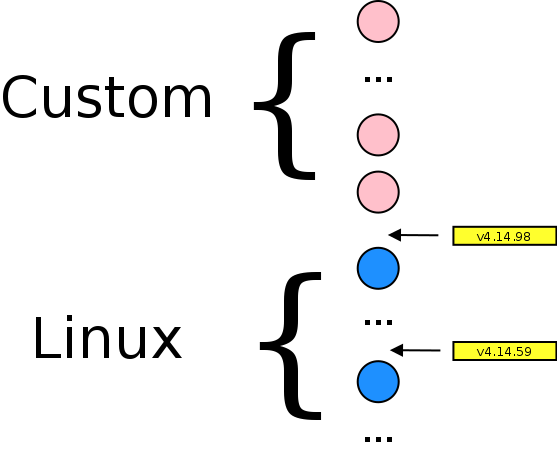Max stack usage for C program
Another day, another script. This one helps to compute the maximum stack usage of a C program. In facts, it combines the output of cflow and GCC GNAT to find the heaviest path used (which is not necessary the deepest). The first one compute target software call graph while option -fstack-usage of GCC creates .su files containing stack usage of all functions.
Targets software are simple embedded software. This script is a simple base not intended to run on all cases, handle dynamic stack nor recursive functions (if you wish to add it...).
A file version is available here.
#!/usr/bin/env python
import os
import re
import argparse
class SUInfo:
def __init__(self, filename, line, func_name, stack_size):
self.filename = filename
self.line = line
self.func_name = func_name
self.stack_size = stack_size
def __str__(self):
s = '%s() <%s:%s> %d' % (self.func_name, self.filename, self.line, self.stack_size)
return s
class FlowElement:
def __init__(self, root, depth, stack_size, suinfo):
self.root = root
self.depth = depth
self.stack_size = stack_size
self.suinfo = suinfo
self.childs = []
def append(self, suinfo):
self.childs.append(suinfo)
def __str__(self):
spaces = ' ' * self.depth
su = self.suinfo
res = '%s-> %s() %d <%s:%d>' % (spaces, su.func_name, su.stack_size,
su.filename, su.line)
return res
def display_max_path(element):
print('Max stack size %d' % (element.stack_size))
print('Max path :')
res = ''
while element:
res = str(element) + '\n' + res
element = element.root
print(res)
cflow_re = re.compile(r'([ ]*).*\(\) \<.* at (.*)\>[:]?')
def parse_cflow_file(path, su_dict):
root = None
cur_root = None
current = None
cur_depth = 0
max_stack_size = 0
max_path = None
with open(path) as f:
while True:
line = f.readline()
if not line: break
match = cflow_re.match(line)
if not match: continue
spaces = match.group(1)
# Convert tab into 4 spaces
spaces = spaces.replace('\t', ' ')
depth = len(spaces)/4
filename = match.group(2)
(filename, line) = filename.split(':')
filename = '%s:%s' % (os.path.basename(filename), line)
suinfo = su_dict.get(filename, None)
# Some functions may have been inlined
if not suinfo:
# print('WARNING: Key %s not found in su dict"' % (filename))
continue
if not root:
root = FlowElement(None, 0, suinfo.stack_size, suinfo)
cur_root = root
current = root
max_path = root
max_stack_size = suinfo.stack_size
else:
# Go back
if depth < cur_depth:
while cur_root.depth > (depth-1):
cur_root = cur_root.root
# Go depth
elif depth > cur_depth:
cur_root = current
cur_depth = depth
stack_size = cur_root.stack_size + suinfo.stack_size
element = FlowElement(cur_root, cur_depth,
stack_size,
suinfo)
current = element
if stack_size > max_stack_size:
max_stack_size = stack_size
max_path = current
cur_root.append(element)
display_max_path(max_path)
su_re = re.compile(r'(.*)\t([0-9]+)\t(.*)')
def parse_su_files(path, su_dict):
for root, dirs, files in os.walk(path):
for sufile in files:
if sufile[-2:] != 'su': continue
with open(os.path.join(path, sufile)) as f:
while True:
line = f.readline()
if not line: break
match = su_re.match(line)
if not match:
# print('WARNING no match for "%s"' % (line))
continue
infos = match.group(1)
(filename, line, size, function) = infos.split(':')
stack_size = int(match.group(2))
key = '%s:%s' % (filename, line)
su_info = SUInfo(filename, int(line), function, stack_size)
su_dict[key] = su_info
if __name__ == '__main__':
optparser = argparse.ArgumentParser(description='Max static stack size computer')
optparser.add_argument('-f', '--cflow-file', dest='cflow_file',
help='cflow generated file')
optparser.add_argument('-d', '--su-dir', dest='su_dir',
default='.',
help='Directory where GNAT .su files are generated')
options = optparser.parse_args()
su_dict = {}
parse_su_files(options.su_dir, su_dict)
parse_cflow_file(options.cflow_file, su_dict)
Usage & example
Let's take this simple software as example.
First, compile your software using -fstack-usage options in CFLAGS. It will creates an .su file for each object file. Then, launch cflow on your software. Finally, call my script.
mkdir test
cd test
gcc -fstack-usage gget.c -lpthread -lcurl
cflow gget.c > cflow.res
./cflow.py -f cflow.res
Result:
Max stack size 608
Max path :
-> main() 352 <gget.c:493>
-> do_transfert() 160 <gget.c:228>
-> progress_cb() 96 <gget.c:214>



